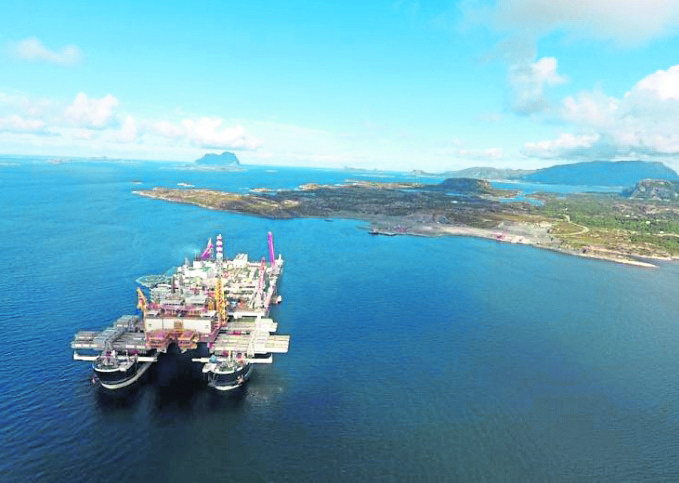
Unlike the common practice in the UK, licensees in the Norwegian continental shelf (NCS) do not routinely provide or have the benefit of security for the cost of decommissioning the facilities and installations used to extract oil and gas.
As in the UK, licensees have joint and several liability for licence obligations, so may be required to pick up the cost of decommissioning if any of the other licensees fail to pay their share.
Although the Norwegian Standard Joint Operating Agreement includes mechanisms that can be invoked in cases of payment default, these may be ineffective in the late life of a field – there is a high risk that the remaining resources that the non-defaulting licensee may seize from the defaulting licensee are insufficient to cover the relevant decommissioning costs.
Although there has been some discussion on how to improve this situation, the focus of the Norwegian authorities has to date not been on decommissioning of a field in the ordinary course but on the situation when there is a direct (asset sale) or indirect (company/share sale) transfer of ownership in licence interests, particularly as such transactions may move assets to less financially robust companies.
The Norwegian Petroleum Act has since 2009 included provisions whereby the seller of a direct interest in a licence has secondary liability for the decommissioning costs related to the facilities in place at the time of the completion of the sale. If the buyer, as the new licensee, defaults, the seller can be held liable.
These provisions, increasing the deal risk for sellers, resulted in a practice (also widely used in the UK) whereby sellers of assets require a decommissioning security agreement under which the buyer’s parent company or bank issues security to the seller in case this secondary liability is invoked.
The 2009 provisions apply to asset sales only (ie sale of the interest in the asset by way of transfer of the licence and related contracts).
A sale of all or part of the shares in a company holding interests in production licences is not covered.
Although the Norwegian Ministry of Petroleum and Energy (MPE) had signalled that it would consider invoking similar arrangements for the sale of shares, the issue was unresolved until in 2017 the MPE decided, triggered by specific transactions they were dealing with at the time, to invoke a system of decommissioning liability for share sales.
This takes the form of a Seller’s Decommissioning (Parent) Guarantee, also referred to as the Decom PCG to distinguish it from the State PCG issued by all licensees to the Norwegian State.
Unlike the system for secondary liability in asset sales, no specific new legislation was introduced to create the share seller’s liability.
The Norwegian Petroleum Act requires that parties obtain approval from the MPE for any transactions (whether direct or indirect) which result in a change in control of an interest in a production licence on the NCS.
These regulations enable the MPE to set conditions for its approval, and the MPE may therefore impose this liability and require the Decom PCG as a condition of such approval.
This new policy has now been invoked in practice on several occasions, and the MPE has published a form of guarantee. Although the MPE has underlined that it is still considering details of the system, the following can be identified as main elements:
• The guarantee for the share seller’s decommissioning liability may be issued by the share seller itself, or by its parent or ultimate parent – at the MPE’s discretion.
• The guarantee document is drafted by the MPE, with limited possibility for amendment.
• The guarantee is structured as a surety – under Norwegian law, the mere default of the target firm to pay decommissioning costs (ie cash calls relating to decommissioning) which under the current form of guarantee is treated as occurring three months after the due date, will trigger payment – there is no requirement for the licensees to utilise rights under the JOA or insolvency procedures before claiming under the Decom PCG.
• The beneficiaries of the guarantee are the licensees in the production licences held by the target company, and the Norwegian state (it is assumed that the State PCG issued by the seller’s ultimate parent will be released if that entity is issuing the Decom PCG).
• If less than 50% of the shares in the target company are sold, the starting point is that no Decom PCG will be required. This is, however, in the discretion of the MPE and it cannot be ruled out that a Decom PCG may be required.
• The liability is a pure financial liability (rather than a liability to perform decommissioning) but is unlimited, and the full pre-tax value of the defaulted decommissioning cost is payable.
• The liability also covers any secondary decommissioning liability of the target company in respect of previous asset sales.
• The liability covers only facilities in place at the completion of the share sale transaction – the system will thus not be relevant for transactions concerning exploration licences only.
The result of this development is that for decommissioning liability purposes the Norwegian regulatory system is now neutral as between asset and share sales. However, under the Decom PCG co-venturers can claim the full pre-tax value of defaulted costs from the guarantor.
For assets sales, the 2009 provisions limit recovery to the post-tax value (the licensees must claim for tax losses and thus have the main bulk of the defaulted cost covered by the Norwegian state which, while secure, creates a delay in payment).
The Decom PCG therefore has advantages for co-venturers and we foresee that this may influence how Norwegian licence transactions are structured in the future.
CMS is grateful to colleagues at the Norwegian firm of Schjødt for their assistance with this article
Penelope Warne, the senior partner, CMS
Recommended for you
